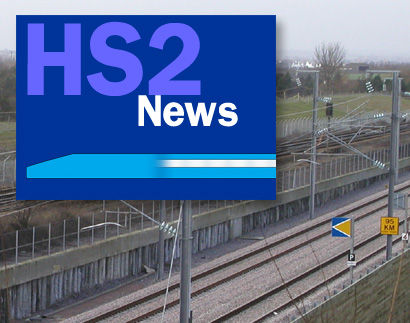THE Department for Transport has published a revised business case for building High Speed 2.
The new analysis has been welcomed by supporters of the project, but opponents are claiming that the Government 'is looking desperate'.
The DfT said 'Britain cannot meet its future transport needs without HS2', while the transport secretary said this morning that the alternative suggestion, that existing routes should be upgraded, would still cost £20 billion, take 14 years and result in tremendous disruption to existing services.
The Government warns that with over £50 billion of planned transport investment over the next six years 'the country’s railways will be overwhelmed', and that its strategic case for HS2 sets out in detail 'the need for a new railway line to provide the vitally needed extra capacity'.
Central to the DfT's case is new data that reveal the true extent of the crisis facing the rail network and the effects of trying to build alternatives.
The document outlines how demand for rail travel will continue to grow. By 2026 40 per cent of passengers will be standing on London commuter services during the evening peak, while research by Network Rail and Atkins shows that the alternative to HS2 would result in up to 14 years of weekend closures on existing lines and provide only a fraction of the additional capacity.
Transport secretary Patrick McLoughlin said: “We need a radical solution and HS2 is it. A patch and mend job will not do – the only option is a new north south railway. HS2 brings massive benefits to the north, is great for commuters and the alternatives just don’t stack up.
“Now is the time to be bold and deliver a world class railway which Britain deserves and can truly be proud of. Future generations will not forgive us if we fail to take this opportunity.”
Michael Roberts, the newly appointed director general of the Rail Delivery Group, said: "Through the hard times and the good, demand for rail travel has boomed. There are a million more services and half a billion more passengers on the railway this year than there were a decade ago. By 2020, a further 400 million journeys will be made annually. There is a capacity challenge not just on the West Coast Main Line, but on the railway more generally. That is why we must plan for a network which can move more people and freight across the country safely, reliably and efficiently.
"Later this week, the Office of Rail Regulation will confirm a multi-billion pound programme for the next five years to maintain, renew and enhance the existing rail network. We will need to sustain such commitment in the longer term, and to look seriously now at options for new lines which can form integral parts of the network in future.
"We therefore welcome the vital contribution made by today's report in helping understand how rail can achieve its wider ambition to play a growing role at the heart of a modern, green economy."
Some supporters are pointing out that the construction phases alone will bring substantial benefits. Head of transport at the Institution of Mechanical Engineers Phillipa Oldham said: "This business case offers welcome clarification of the benefits of rolling out HS2. HS2 provides the step change required to help to remove the bottlenecks in our transport infrastructure by increasing our capacity limits and helping to bridge the North South divide. Introducing HS2 will increase capacity for long distance travellers but also regional and local services on the existing railway.
“Commitment to HS2 also provides the UK’s engineering industry with the much-needed confidence to invest in future skills and will help the UK become a world leader in the development and delivery of railway technology. Over 95 per cent of Crossrail’s budget to date has been won by UK-based businesses – and this is something which could and should be replicated in HS2."
However, Stop HS2 campaign manager Joe Rukin said; "As we expected, the Government have pulled some random figures out of the air in a desperate attempt to con the public. As if by magic, they expect us to believe that after three years that the economic case for HS2 has risen like a phoenix from the flames. They surely must realise that everyone is going to see through this cynical attempt at spin. Every case they have put up for HS2 so far has been torn apart, and this one will be no different. It is really quite sad that Government think throwing everything at an expensive PR exercise will all of a sudden create support for HS2. They are just looking increasingly desperate and should give it up.”


